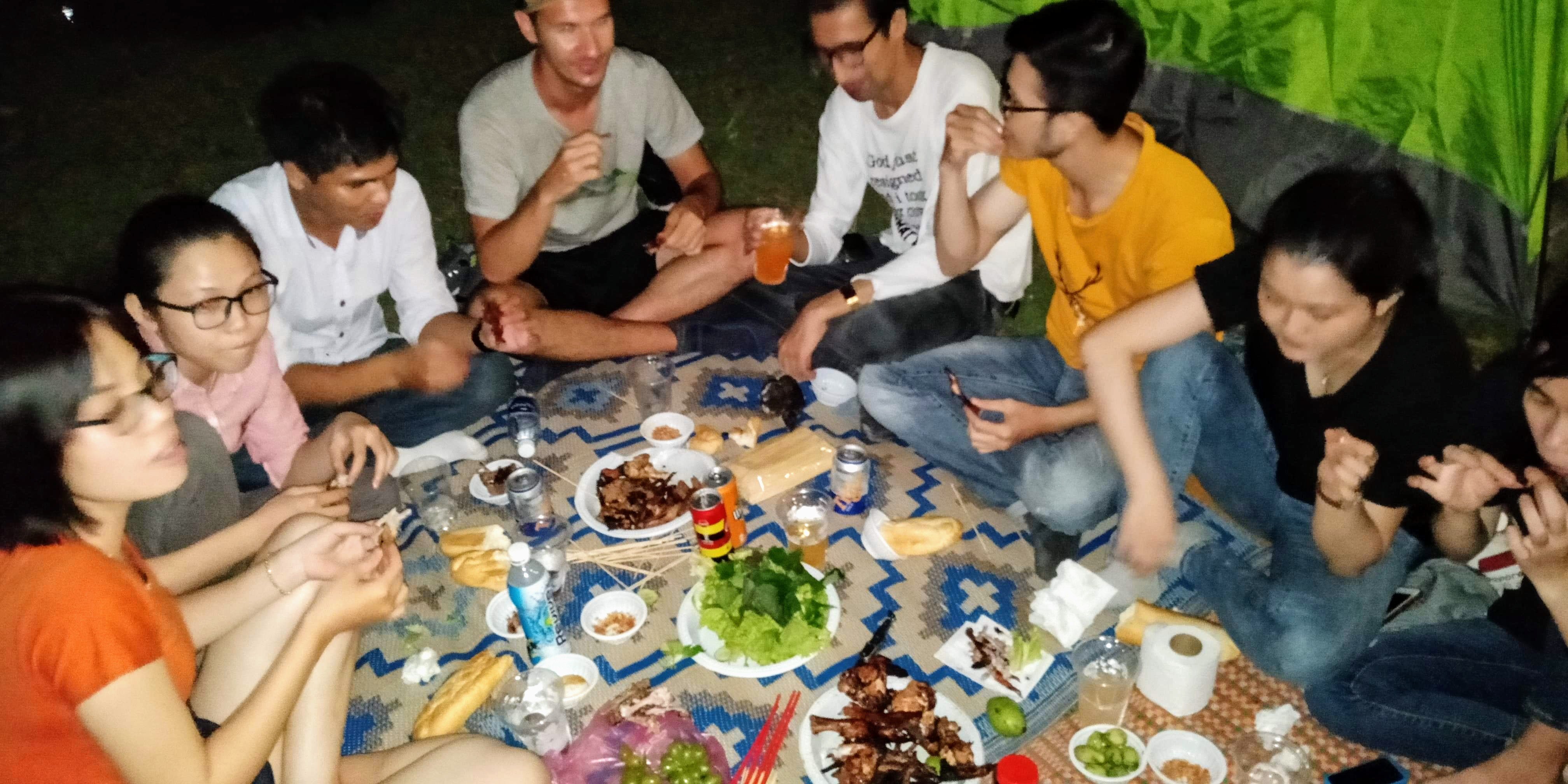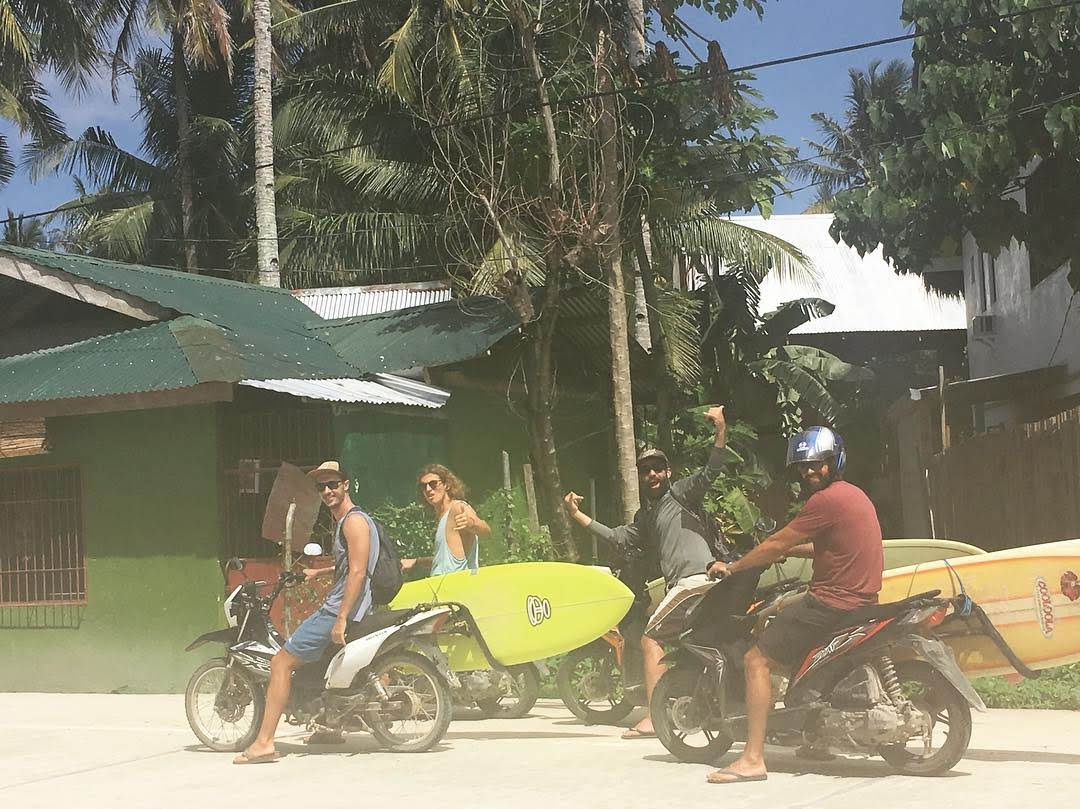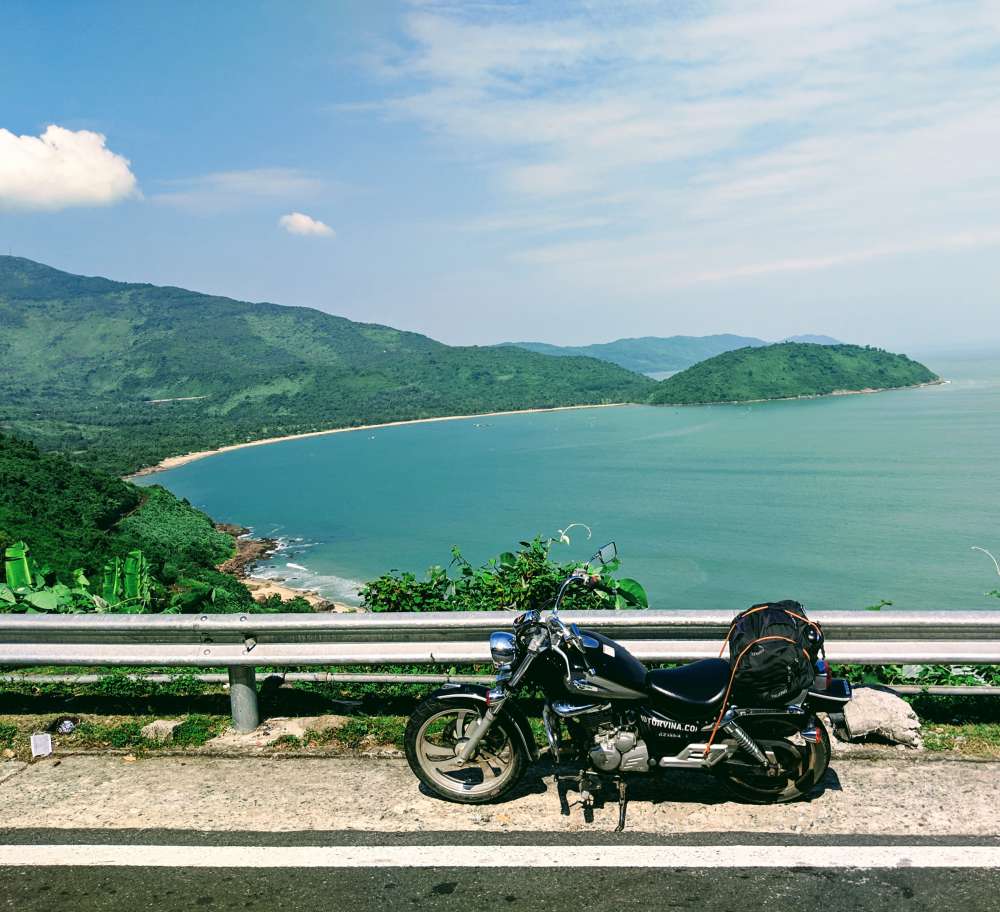Six months backpacking
and mastering the Bum Gun
I am sitting on the toilet throwing my shit-stained toilet paper in the trash can under the sink when I realize: Whoops, I'm back in Germany! Before my mind fully makes this transition, I'll try to retain some of the (also peculiar) synapse connections my mind formed during months on the road.
Days: 181 (Sept 2018 - March 2019) Thailand (26) Cambodia (7) Vietnam (30) USA (15) Mexico (25) Bali (59) Philippines (19) $/day: 75 (no flights) Hostels: 40 Favorite for backpacking: Vietnam Longest stay: Canggu (Bali) for 45 days Backpack: 40L, 10kg (peek inside) Boxershorts: 3 Days with diarrhea: 10

There's a time and a place for everything.
My travels were divided into two different modes. The first mode was Exploration: Changing hostels every few days, doing tours, sightseeing. It's difficult to get a consistent sleeping routine or stick to a workout schedule. There's too much to experience and everything is always changing. It's exhilarating, but it can also be exhausting. Therefore, I limited these pure backpacking sections to a few weeks and didn't even try to get work done or sleep long – that's not what these times were for.
The other mode is Exploitation: Dedicating time to a specific goal or diving deep into a topic discovered in the exploration phase. In these phases, I found it ideal to stay in one place, get into a routine and be strict with myself. I find the cafes with solid wifi, where to get the best avocado toast and which sketchy shop rents the cheapest scooters. Now I can spend my energy exclusively on the task at hand. I did this in Bali where I spent 45 days learning surfing, web development and eating healthy.
Of course, sometimes I also switched these modes on an hourly basis. Still, it was helpful to keep them separate in my mind. Then I didn't have to have a bad conscience when I wasn't writing that post while playing Jenga at the hostel, because I knew there's a better suited time and place for this.
Some memorable Experiences
...many of them because of the great people involved.
- 10-day silent meditation camp (blog post)
- eating chicken feet
- crossing any street in Ho Chi Minh City
- delicious Bánh mi & Bánh bao
- riding Nightbuses and Nighttrains
- motorbiking the Hai Van Pass
- Paradise Cave in Phong Nha
- swimming with Bioluminescence
- history about Khmer Rouge and Vietnam War
- eating Tacos al Pastor in Mexico City
- Scuba diving through a fish swarm in Amed
- surfing in Canggu and Siargao
They're doing it. Right now.
Traveling also gave me a glimpse into a "Parallel Society". These are backpackers, volunteers, online-teachers, writers, influencers, digital nomads, spread throughout the world, living for a few months or years different than the rest. This brings other benefits and, of course, also other problems. But they prove that work, play and life can be structured differently and the lines between them blurred. For me, it was inspiring to see and talk to people that are living like this right now.

I'm privileged (cliché, I know).
This thought has been reiterated so many times that I considered leaving it out, but I think it's one of my most important realizations. How effortlessly I could save enough money to fly and experience a foreign country, compared to how much more difficult it would be vice-versa – for a college graduate from Cambodia to backpack through Europe.
And I'm not just privileged in terms of money, but also options. Merely because I was born at the specific patch of earth to get a German Passport, I'm able to enter so many countries with so little bureaucratic effort. I didn't earn this, do anything for it, that's just given to me.
The final privilege is environment. An education at a renowned university doesn't guarantee professional success but does increase the chances (even if only connecting you with ambitious people or convince recruiters who put a disproportionate value on where you got your degree from). I have no doubt that there are kids as capable as me in Cambodia or Vietnam but imagine the challenges they would have to overcome to e.g. study at ETH. One of the hardest things for them is to even recognize that as a possibility because they must do something so radically different than their parents, peers, environment. Then, they have to convince university recruiters of their potential with a foreign report card. On top of that, money and Visa will be huge issues.

Your environment influences what you view as important.
In the last 4 years I nodded in admiring recognition when someone got published in IJRR instead of just RA-L; found it self-evident to dedicate months of my life to optimize not just step-timings, but the gait sequence; had hour-long discussions on the crucial importance of modeling the effects of leg motions on body accelerations. It was super exciting to work on these challenges, but I forgot how much of a niche I was really in. And I probably exaggerated to myself how much this research really matters to the world. Now I catapulted from the academic robotics bubble right into the backpacker-bubble, where dinner conversations revolved about breathtaking places you gotta see, local food you must try and that you don't want to go back home. What people consider important in this environment also has some justification. So I think sampling various bubbles results in the most holistic perspective on life.
When you're not fit, everything sucks (especially when traveling).
That’s why I avoided hangovers like the plague and rarely drank more than a few beers. But if eight beer cause a terrible hangover, signaling that my body is hurt by the alcohol, then one beer still harms my body 1/8 of the amount – even if I don’t feel it. I’ll only compromise my health if the alcohol I’m drinking is delicious and there’s no non-alcoholic alternative. Therefore I’m forever done with shots (yuck!) and beer and wine are mostly replaced by tasty fresh-juice. I doubt I’ll find an alternative to a delicious mojito though.
I also smoked occasionally at the beginning of the travels, as many backpackers seem to do. However, I realized that my main reason for smoking was that I enjoyed being able to have some alone-time anywhere (at a raving party, during an uninteresting dinner conversation) – no questions asked. It was an introvert thing, an excuse. I've now convinced myself that I'll just take these times if I need them, even without smoking a cigarette.
I also learned...
"Strong opinions, loosely held." (Let's talk about it.)
- US was the bad guy in Vietnam war.
- plastic waste in the ocean is a huge issue in Bali.
- if choosing a bunk bed, choose the bottom one.
- sharing a room with other people is not a problem.
- I now enjoy a small get-together way more than a party.
- 4 males can fit on one scooter.
- even quiet people want to talk if one asks the right questions.
- SE-Asia seems so safe. I had no criminal incident in six months.
- eating with chopsticks.
- using Google Maps for life.
- judging a hostel through Hostelworld images.
- expertly using "Bum-Guns" (lower between legs!).
- how to kick-start a scooter.
- teaching English (workaway.info).
- Surfing, Yoga, Scuba diving, Photography, Jenga, Marco-Polo,...

Was loneliness an issue?
In hostels there are a bunch of solo travelers that want to connect, so that wasn't an issue if you're confident enough to strike up a conversation. In hotels, with less of a social vibe, it was more difficult. But even then, being connected to friends and family over Skype, WhatsApp, etc. never really made me feel alone. Technology ftw!
Useful travel apps
Having internet on the road makes traveling sooo much easier – I can't even imagine how it must have been 10 years ago. So when arriving at an airport, I'd buy a prepaid SIM card for about 20$ with 15GB highspeed LTE. These are my favorite travel apps and how I used them:
- Google Maps: The number one on my home screen (sorry maps.me evangelists). Especially the "offline maps" options is great when traveling to a new country where you don't have data yet. Also great to search for ATMs, restaurants and to save your hidden gems.
- Hostelworld: I avoided hostels with names that end with an animal since they are often Party Hostels (termed "Atmosphere" on Hostelworld). Rarely needed to reserve more than a day in advance. Hostels a bit away from the center and about 2$ more expensive attracted more my crowd (30ish, more chill). I prefer to stay at least 3 nights per hostel, as things usually get better as you get to know the people, location.
- Couchsurfing: Even if you don't want to crash on someone's couch, check out the Hangouts feature to spontaneously meet with other travelers.
- Grab: The Uber equivalent of SE-Asia. Make sure to add your CC in the app beforehand. Then, as soon as you have internet, you're mobile! They also have scooters to pick you up, which is a great budget option if you travel with only a backpack.
- GoJek (Food): If in Bali, use this app to get dinner delivered to your home for only 1$ extra.
Follow me on edium or enter your email below to get notified about new posts.